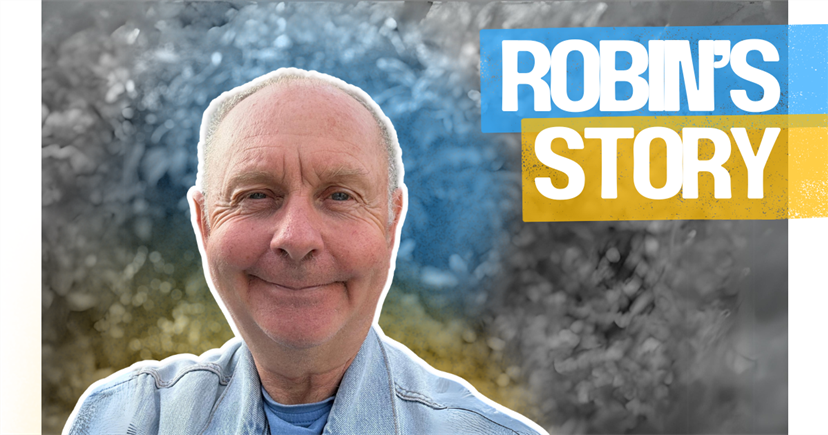Robin's Story
My name is Robin. You’ll sometimes spot me in the main library, usually wearing a hoodie and DMs.

I’m a Doctoral Researcher on the Practical Theology Programme. I’m also part-time—which means that every day on campus is precious. As part-time Doctoral Researchers go, I’m rather normal: however, in one very obvious way I am not: I am 66 years old.
‘Why?’ is the first question that I am always asked: most commonly “Why bother to put yourself through the stress of Uni at your age?” If you’re curious to know the answer, then read on.
My journey before coming to Birmingham
I ended my first student career in 1978—and, yes, back then we really did have to access the library catalogues manually using a card index, and we did have to produce all our essays on a typewriter. Students had to queue in the rain for the phone box on the corner, and we communicated with our Tutors using handwritten notes.
After I graduated from Selwyn College, Cambridge, I volunteered to be a teacher in Uganda because it sounded fun. I arrived at Entebbe airport in January 1979 and witnessed an execution within my first hour: a young woman beaten to death by a soldier because she wouldn’t (or couldn’t) pay a bribe. Human life was cheap during the reign of President Idi Amin and, during the following months, my own life was directly threatened on three separate occasions. Perhaps it was because I came so close to being murdered that I promised myself I would try to live each remaining day as a gift. So, I became a life-long learner.
Fast-forward to 2020 and I retired from my final job as a classroom teacher: a specialist in teaching Religious Studies to Years 10-13. The very next day I went into the Oxford University Bodleian Library and began to research. Initially I binge-read everything I found vaguely interesting—ricocheting from Pre-historic Religion and Ritual to Social Anthropology and Tribalism, with a brief detour into the fascinating world of Anglo-Saxon deviant burial customs. Accessing this major research library was, for me, like being a kid in a sweetshop.
Reflections
Eventually I realised two things.
First, that I still possessed the study skills needed to tackle some proper research.
Second, that an old and half-forgotten academic interest was beginning to resurface. Back in 1980 I had worked for twelve weeks on placement as a Chaplain to a busy Accident and Emergency Unit in Leeds. I had shared in the unexpected final moments of 54 individuals, aged between 95 and 13—and, at their unique moments of passing, I had often sensed that ‘something special’ was going on. Other staff sensed it too. So, I began a thorough and critical study of the liminal space between life and death: the undiscovered country we call dying.
My research
In my research at UoB I am seeking to bring together insights from Neurophysiology, Psychology, Philosophy and Theology to develop a reliable framework for interpreting Near-death Experiences.
It probably sounds weird—morbid even—but when you read what near-death survivors describe (especially the children) then one is instinctively humbled by their clarity of perception, the insights which are often so far beyond their years, and their absolute conviction that death is not the end but only the beginning.
Why UoB? Because we have a world-class Theology and Philosophy research department, and because the staff here are willing to take my research seriously. Three other Universities thought my topic was “quite obviously too far-fetched”. So, I will spend six of my remaining years researching at UoB. If you see me around campus, please smile.
Got a story to tell? We're looking for students – part-time, full-time, undergraduates, postgraduates (taught and research) mature students, and distance learners – to share their authentic stories of studying at the University of Birmingham. Share yours today.